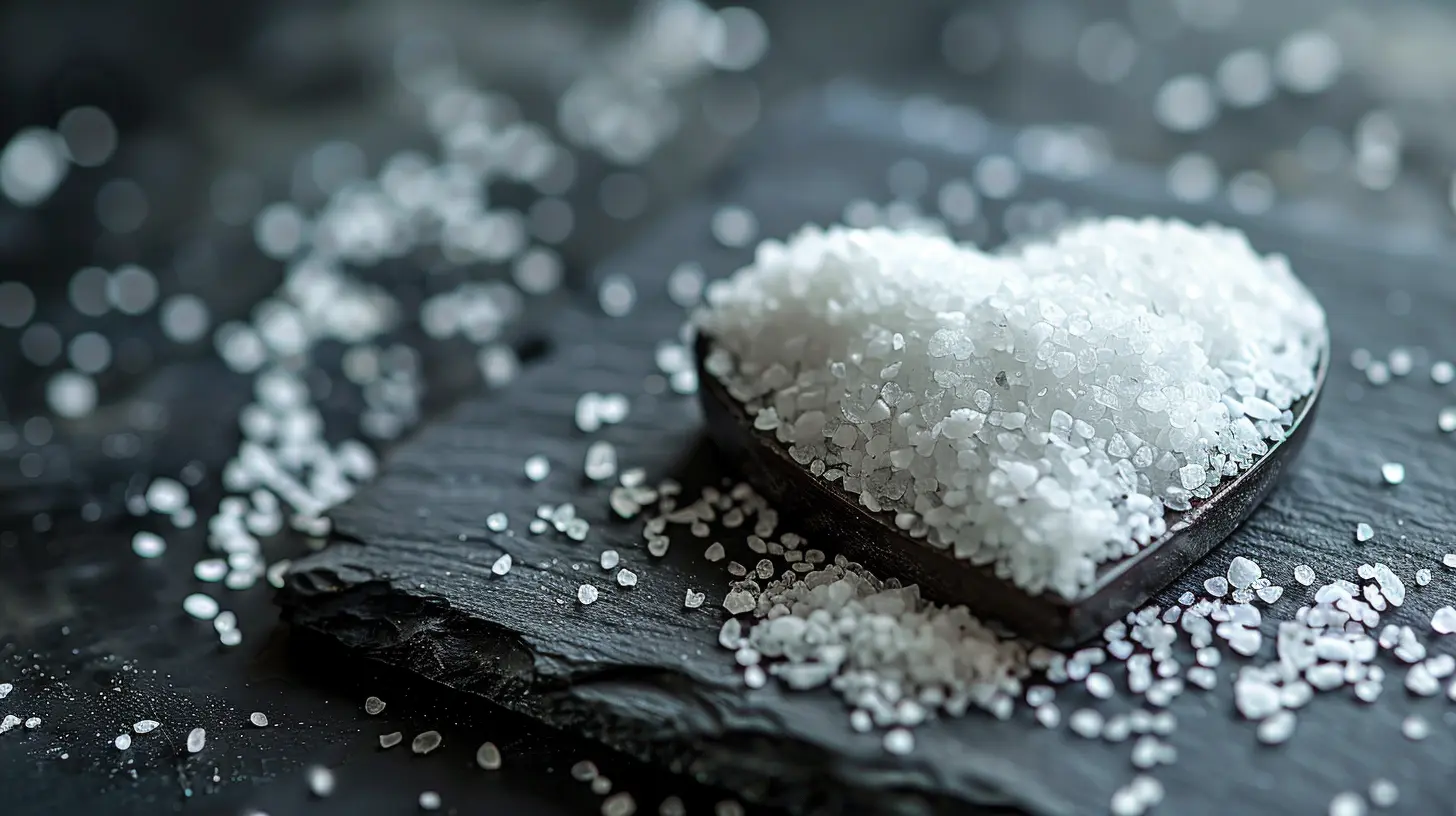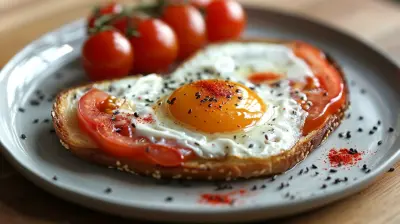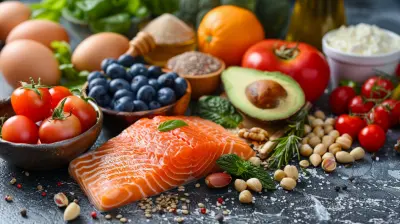How Much Salt is Too Much? Sodium’s Role in Heart Health
21 May 2025
Salt—it's the magical ingredient that makes fries irresistible and popcorn downright addictive. But at what point does this beloved mineral turn from friend to foe? We’ve all heard that too much salt is bad for our health, especially the heart, but how much is too much? Grab your favorite snack (maybe go easy on the salt!), and let’s break it down.
What Is Sodium and Why Do We Need It?
Sodium is an essential mineral that our body needs to function properly. It helps regulate fluids, supports nerve function, and keeps our muscles (including our heart) working smoothly. Without it, our bodies would be in total chaos—kind of like a cell phone with no signal, completely out of sync!But just like that one friend who overstays their welcome, too much sodium can cause trouble. The issue isn’t just about sprinkling a little extra salt on your dinner—it’s about the hidden sodium in processed foods that can sneak up on you.
How Much Sodium Is Recommended Per Day?
The American Heart Association (AHA) recommends that most adults aim for less than 2,300 milligrams (mg) of sodium per day, with an ideal limit of 1,500 mg for better heart health. To put that into perspective, one teaspoon of salt contains about 2,300 mg of sodium—the max recommended daily intake!But here’s the kicker: the average American consumes over 3,400 mg of sodium per day! That’s like filling up your gas tank with way more fuel than it needs—eventually, things start overflowing and causing problems.
What Happens When You Eat Too Much Sodium?
You might not feel the effects of excess sodium immediately, but your body sure does. Here are some ways high sodium intake can impact your health:1. Raises Blood Pressure (The Silent Killer)
When you eat too much sodium, your body holds onto extra water to help balance everything out. This increases blood volume, making your heart work harder to pump blood—leading to high blood pressure (hypertension).Hypertension is often called the "silent killer" because it creeps up without noticeable symptoms but increases the risk of heart disease, strokes, and kidney problems. Not exactly the kind of surprise you want!
2. Strains the Heart
Think of your heart as a hardworking pump. When you overload it with too much sodium, it’s like forcing your pump to work overtime with no break. Over time, this can lead to heart failure, where your heart becomes too weak to pump blood efficiently.3. Increases Risk of Stroke
High blood pressure caused by excess sodium can damage arteries, making them stiff and narrow. This increases the risk of blood clots, which can lead to strokes—a scary consequence for something as small as those extra salty fries.4. Can Cause Kidney Damage
Your kidneys play a huge role in filtering out extra sodium. But when you overload them, they struggle to keep up. Over time, this can lead to kidney disease or even kidney failure.5. Triggers Water Retention (aka The Bloat Effect)
Ever notice your fingers feel puffy after a super salty meal? That’s because too much sodium leads to water retention, causing bloating and swelling. Not exactly the best look (or feeling) before a night out!
Where Is All This Sodium Hiding?
Most people think that avoiding the salt shaker is enough, but here’s the truth: about 70% of the sodium we eat comes from processed and restaurant foods. That means even if you never add extra salt to your meals, you might still be overdoing it.Here are some sneaky sodium sources:
- Processed foods – canned soups, frozen meals, deli meats, and snack foods.
- Fast food & restaurant meals – burgers, fries, pizza, and even salads (yes, dressings can be loaded with sodium!).
- Bread & baked goods – you wouldn’t think of bread as salty, but it adds up.
- Cheese & dairy products – some cheeses pack a surprising sodium punch.
- Sauces & condiments – soy sauce, ketchup, salad dressings, and even pickles contain hidden sodium.
Reading food labels can be an eye-opener—some single-serving items contain more than your entire daily sodium limit!
How to Cut Back on Sodium Without Sacrificing Flavor
Giving up salt doesn’t mean eating boring, bland food. Here are some easy ways to cut back without feeling deprived:1. Cook More at Home
Making meals from scratch gives you full control over the ingredients. Use fresh herbs, spices, lemon juice, and vinegar to add flavor without the extra sodium.2. Check Food Labels
Look for "low-sodium" or "no salt added" versions of your favorite foods. The key is checking the sodium content per serving—you might be shocked at what you find.3. Drain & Rinse Canned Foods
If you're using canned beans or veggies, rinse them under water to wash away excess sodium.4. Cut Back on Processed & Fast Foods
As convenient as they are, processed and fast foods are major sodium culprits. Try healthier alternatives or prepare your own versions at home.5. Go Easy on the Sauces & Condiments
Soy sauce, BBQ sauce, and even salad dressings can add tons of sodium. Opt for lower-sodium versions or try seasoning with fresh herbs instead.6. Taste Before You Salt
It’s a habit for many to salt food before even tasting it. Break the habit—your food might already have enough flavor!7. Use More Potassium-Rich Foods
Potassium helps counteract the effects of sodium. Load up on bananas, sweet potatoes, leafy greens, and beans to keep everything balanced.The Bottom Line: Moderation Is Key
Salt isn’t the enemy—it’s all about balance. While our bodies need sodium to function, too much can take a toll on our heart and overall health. Paying attention to processed foods, reading labels, and making simple swaps can help keep sodium in check without sacrificing flavor.So, next time you reach for the salt shaker, ask yourself—do you really need it, or is it just a force of habit? Your heart will thank you!
all images in this post were generated using AI tools
Category:
Heart HealthAuthor:

Eileen Wood
Discussion
rate this article
3 comments
Joel Warner
Stay salty wisely for heart health!
May 28, 2025 at 2:40 AM

Eileen Wood
Thank you for your comment! Moderation is key—balance is essential for heart health.
Jenna Parker
Thank you for this insightful article! Understanding sodium's impact on heart health is crucial. Your tips on balancing salt intake while maintaining flavor in meals are particularly helpful. Looking forward to more informative content!
May 25, 2025 at 3:05 AM

Eileen Wood
Thank you for your kind words! I'm glad you found the article helpful. Stay tuned for more insights on heart health!
Olive Benson
Thank you for this insightful article! Understanding sodium's impact on heart health is crucial. I appreciate the practical tips and information provided. It’s a reminder that small changes in our diet can lead to significant health benefits.
May 24, 2025 at 3:35 PM

Eileen Wood
Thank you for your kind words! I'm glad you found the article helpful. Small dietary changes can indeed make a big difference in heart health!



